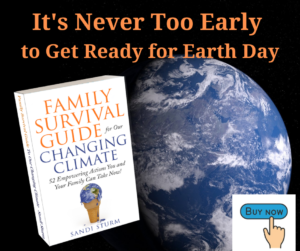What comes to mind when you think of the term minimalist? Do you think you have to reduce your belongings to ridiculous amounts and live on the road from a backpack? Or do you see images of people sitting in a sterile room that is adorned with one table, one plant, and three books?
I know, those are crazy thoughts, but some people ignore the concept of minimalism because that is what they think it is.
The truth is minimalism is more of a mindset. It allows you to look at things in your environment and ask if it serves you or exhausts you. It is a way to live a meaningful life, not one that society has dictated for us.
Material things do not make us happy. Happiness comes from who we are or who we have become. It is within, not from things we accumulate. But the real goal is to lead a meaningful life. It is living deliberately.
For example, are you happy having to work 40 – 50+ hours per week to pay for those things you bought that you thought would make you happy? Being in the rat race takes our concentration away from mindfulness which in turn blocks having a meaningful life. And those things we buy may give us a rush of excitement for a few minutes, but by the time the next payment is due, it can become a burden.
I need to add here that not all our work is this way. But most of it is.
What anchors are in your life that keep you from feeling free? Is it a large mortgage or car payments? Is it a bad relationship? What takes up a lot of your time without giving value to your life?
This may be where people get confused as to the meaning of minimalism. Yes, you will rid yourself of any anchors that are holding you down. But the reason is to give yourself room to create a meaningful life, not just clean out a closet.
It is about freeing up time so you can spend it on things that bring true happiness – time with family, travel, dinner with friends.
Living minimally equates to achieving freedom from fear, worry, overwhelm, guilt, depression, and enslavement.
This will look different to each of us. What we strip away will be different, but the end goal is to focus on the important things in life. It allows you to create more and consume less.
Which brings me to the correlation between minimalism and environmentalism.
Wayne and I made a conscious decision to eliminate pretty much everything we possessed (or possessed us) and move into an RV. When you start looking at things in this way you realize what is necessary for daily life.
I can safely say that everything in our space is used and serves a purpose. Even the few books I have remaining that live under the sofa.
Any purchase we make is to replace something that no longer works. And every few months I evaluate what is still here that no longer serves us. It is amazing to think that we still have enough stuff to donate after being in here for three years.
In the beginning I had to ask myself before any purchase, “Will it fit in the RV?” Even a bag of corn chips can cause a problem when you live in about 160 square feet.
When I was writing my book I started eliminating at a deeper level. I wanted to eliminate toxic chemicals from the bathroom and kitchen. Then I wanted to eliminate plastics. Those things did not serve us at all.
Now the challenge is textiles. It is still a challenge to buy sustainable and socially responsible clothing.
I teach in the book and in my writings that “Every purchase we make, and every action we take, has a carbon footprint.”
I value the natural world around me, so as an environmentalist, should we not take a closer look at material things? Do they serve you or harm you (and those around you)?
When I was starting my detoxing and plastic elimination it did not make sense to throw out bottles that still had product. So, it took a couple of years to first use them up, recycle the plastic, and start fresh. It takes a lot of patience.
Some of the big questions for you to answer are:
- What are your anchors?
- What do you value in your life?
- What does a meaningful life look like for you?
For us, eliminating the stuff that required a house to hold and maintain, freed us up to travel and work on our own time. I no longer go shopping for the sake of shopping. I value writing, and teaching others about our natural world and ways to conserve a piece of it for our children, grandchildren, and beyond.
The final question is, “Should environmentalist be minimalist?”









